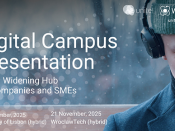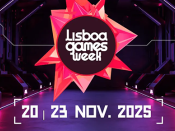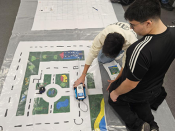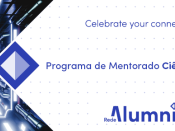Iniciativa a decorrer de 04 a 06 de junho de 2018.
International Summer School of Energy Transition
O evento pretende reunir investigadores que trabalhem sobre temas ligados à indústria e sobre património técnico e industrial, para uma reflexão prospetiva sobre o património industrial e atuais vias de colaboração no seu estudo, salvaguarda e preservação.
O curso propõe uma imersão nos princípios, desafios e oportunidades da Economia Azul, explorando o papel crucial dos oceanos nas transições ecológica e climática - candidaturas até 13 de novembro.
A sessão apresentará a plataforma digital Agora, um espaço colaborativo que disponibiliza recursos, serviços de aceleração e oportunidades de investigação e inovação, ligando estudantes, docentes e investigadores das alianças Unite! e EPiCUR.
Earth Systems Seminar, por Shaghayegh Karimzadeh (University of Minho, Guimarães, Portugal).
Seminário do Departamento de Física de CIÊNCIAS ULisboa, por Lehel Csillag (Babes-Bolyai University).
Nesta sessão aberta, serão abordadas questões relacionadas com o diagnóstico, o modo como se manifesta, formas de tratamento, impacto no dia a dia e diversidade de manifestações da POC. Será um espaço informal para perguntas, partilha e desmistificação.
Seminário em Biologia Humana e Ambiente, por Susana Lopes (cE3c, Faculdade de Ciências da Universidade de Lisboa).
CIÊNCIAS vai estar presente na Lisboa Games Week, o maior evento de videojogos e entretenimento em Portugal! O nosso Departamento de Informática irá promover várias atividades permanentes, durante os quatro dias do evento.
O evento propõe um debate aberto sobre a linguagem inclusiva, reconhecendo-a como uma dimensão essencial da equidade e da participação plena de toda a comunidade académica.
A Feira da Matemática regressa ao MUHNAC e conta, um vez mais, com a participação de vários docentes de CIÊNCIAS!
MISSÃO RAMbo: um percurso em caminhada de sensibilização para a Resistência aos Antimicrobianos (RAM), que decorrerá no Anfiteatro Keil do Amaral, com um percurso de 5,4 km e com possibilidade de trazer o seu melhor amigo (um cão por pessoa).
Conheça os aventureiros que expandem os limites da descoberta em todo o mundo.
As candidaturas estão abertas de 24 de novembro de 2025 a 8 de janeiro de 2026.
Na Semana da Ciência e da Tecnologia, entre 24 e 30 de novembro 2025, a ciência será novamente a grande protagonista.
Uma oportunidade única para desenvolver competências, criar redes internacionais e conhecer de perto uma das instituições parceiras da aliança Unite! - inscrições até 21 de setembro.
A conferência é subordinada ao tema “People and Planet: How the Environment Shapes Human Health”.
O curso visa capacitar investigadores, docentes e técnicos para integrar os princípios da economia circular em ambientes laboratoriais académicos - candidaturas até 22 de novembro.
Workshop no âmbito do Programa de Saúde e Bem-Estar da ULisboa.
A iniciativa visa responder às necessidades de talento digital do país, promovendo a requalificação de profissionais para o setor das tecnologias de informação e comunicação.
O curso visa capacitar profissionais para aplicar os princípios da economia circular em ambientes laboratoriais industriais, promovendo práticas sustentáveis e eficientes - candidaturas até 22 de novembro.
O evento tem como objetivo aproximar a ciência da sociedade, promovendo o diálogo aberto e a reflexão conjunta sobre temas ligados à mente, cérebro e cognição.
Candidaturas de 01 a 31 de dezembro - as sessões informativas têm início a 19 de novembro.
O curso fornece uma compreensão abrangente dos princípios e práticas fundamentais da cibersegurança e da privacidade, com aplicação tanto em contextos genéricos como em sistemas críticos - candidaturas até 07 de novembro.
O curso tem como principal objetivo capacitar para a implementação e gestão sustentável de espaços de cultivo nas cidades, promovendo a segurança alimentar e a autonomia na produção de alimentos - candidaturas até 02 de novembro.
O curso proporciona uma visão aprofundada das tecnologias que suportam o desenvolvimento e integração de aplicações web - candidaturas até 10 de novembro.




















